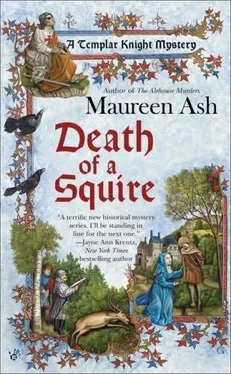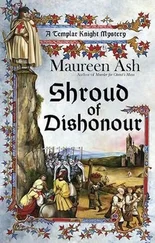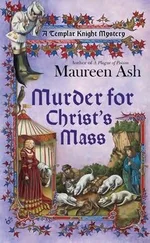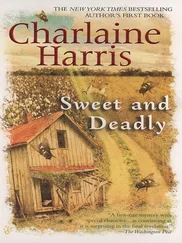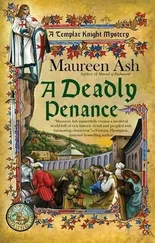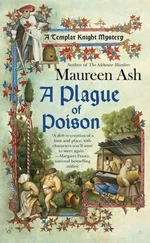Maureen Ash - Death of a Squire
Здесь есть возможность читать онлайн «Maureen Ash - Death of a Squire» весь текст электронной книги совершенно бесплатно (целиком полную версию без сокращений). В некоторых случаях можно слушать аудио, скачать через торрент в формате fb2 и присутствует краткое содержание. Жанр: Исторический детектив, на английском языке. Описание произведения, (предисловие) а так же отзывы посетителей доступны на портале библиотеки ЛибКат.
- Название:Death of a Squire
- Автор:
- Жанр:
- Год:неизвестен
- ISBN:нет данных
- Рейтинг книги:3 / 5. Голосов: 1
-
Избранное:Добавить в избранное
- Отзывы:
-
Ваша оценка:
- 60
- 1
- 2
- 3
- 4
- 5
Death of a Squire: краткое содержание, описание и аннотация
Предлагаем к чтению аннотацию, описание, краткое содержание или предисловие (зависит от того, что написал сам автор книги «Death of a Squire»). Если вы не нашли необходимую информацию о книге — напишите в комментариях, мы постараемся отыскать её.
Death of a Squire — читать онлайн бесплатно полную книгу (весь текст) целиком
Ниже представлен текст книги, разбитый по страницам. Система сохранения места последней прочитанной страницы, позволяет с удобством читать онлайн бесплатно книгу «Death of a Squire», без необходимости каждый раз заново искать на чём Вы остановились. Поставьте закладку, и сможете в любой момент перейти на страницу, на которой закончили чтение.
Интервал:
Закладка:
Fulcher rested his elbows on his knees and stared into the fire. Finally, he straightened up. “I’ll make your choice for you, Talli; for all of you. Tomorrow I’ll go alone to Camville’s chase and try to snare some game. If I don’t, I won’t come back. Then you can go to Jack for help, or to the Devil for all I care.”
With these last words he rose to his feet and strode off into the darkness. Talli looked nervously at Berdo. “He’s sure to be caught. That lad that was hanging in the tree will have been found by now and Camville’s soldiers will be all over the place looking for whoever put him there.”
Berdo shrugged and rubbed his fingers over the remains of his ear. “If he’s taken, he’s taken; if he’s not, he’s not. Either way we’ll get some grease for our innards, if not from Fulcher, then from Green Jack.”
Tostig finished inspecting the buckstall that Gerard Camville had instructed his huntsmen to erect for the enclosure of deer destined for slaughter, then mounted his horse and rode to John Chard’s camp. As he approached the compound he heard the burner’s dog whining. The animal was on the far side of one of the dome-shaped mounds, paws edged close to the body of a man who lay facedown on the ground. Tostig knelt beside the animal and turned the lifeless form over. It was the charcoal burner. The broken shaft of an arrow protruded from his chest and there was a look of surprise on his face. He had been dead some hours, for his body was as cold as stone.
The dog became agitated now, backing away from Tostig, its declawed feet clumsy as it scrabbled round the side of the mound. The forester followed, trying to coax the animal to return, but the dog kept up his lopsided gait and disappeared into the shack that had been the charcoal burner’s home. Tostig went to the door and pushed back the flimsy curtain of bound reeds that covered it. As he stepped inside, the dog began to growl, belatedly trying to protect another body that lay on the floor. It was Chard’s older son, Adam. His throat had been slashed from ear to ear. In his hand was still clutched a stout branch with which he must have tried to protect himself. On the other side of the shack his little brother lay in a similar condition, mouth set in the rictus of a silent scream above the gaping wound in his throat. Blood was spattered over the boys’ clothing and on the beaten earth of the floor. Of what had once been the charcoal burner’s family, only the dog remained alive.
Tostig went outside, took a few deep gulps of air, then dragged John Chard’s body inside the hut to join those of his two sons. After securing the door of the shack against predators, he left the camp. The dog set up a mournful wail as the forester rode off.
Bascot was in the Templar Lincoln Preceptory when one of the castle guard was despatched to apprise him of the forester’s discovery. He had been there since the previous evening, having come to deliver a request from Nicolaa de la Haye for the Order to supply the castle with extra spices, mainly cinnamon, for the king’s visit. D’Arderon, the preceptor, was a man of mature years who had spent almost the whole of his adult life in the Templar Order. He had welcomed Bascot warmly, genuinely pleased to see him. The older Templar knew that Bascot’s imprisonment in the Holy Land had caused doubts about the rightness of the Templar cause in his younger comrade’s mind, and that it had also seriously damaged his trust in God. This lapse had been exacerbated when Bascot had returned to England and found that all of the de Marins family-father, mother, brother-had perished in his absence. But d’Arderon believed it to be only a matter of time before Bascot would, as he put it, “unravel the confusion of his senses” and once more take up his sword and join his comrades in the battle against the Saracens.
It had been time for the evening meal when Bascot had arrived at the preceptory and d’Arderon had invited him to join the company at board. There were three ranks in the Templar Order and their status was denoted by the colour of the surcoats that they wore; knights in white, serjeants and men-at-arms in black or brown, and priests in green. Bascot had taken a place with his fellow knights, enjoying a welcome feeling of ease. Here were men who lived as he had done, scrupulously obeying their vows of poverty, chastity and obedience. The rules were rigorous, but simple. Duty was the prime mandate, to keep oneself fit and able to bear arms in order to protect pilgrims and, if the opportunity arose, to slay the infidel. Templars were not responsible to any earthly magnate, be they monarch or prince, their only obedience outside the Order to the pope in Rome.
Bascot had taken his seat amongst the others, nodding to a few old acquaintances and introducing himself to those he had not met before. The meal was a hearty one, for this was one of the three days of the week when meat was allowed, with good-sized chunks of lamb in a rich brown broth and an assortment of winter vegetables stirred in, followed by plates of cheese and marchpane. Although they were all monks, the usual stricture regarding diet that was laid on nonmilitary religious orders was not applied to the Templars because of the necessity of maintaining their strength for battle. While they ate, silence was mandatory, only a reading of scripture by one of the Templar priests to be heard above the clatter of bowls and eating knives.
Afterwards, Bascot stayed for the recreational hour when the Templars were allowed to gather in the chapter house for general conversation until it was time for the service at Compline. Besides the preceptor, there were only four knights in residence at the moment: two who had just joined the Order and would soon be on their way to Outremer, one recently returned from the Holy Land after fulfilling a vow of atonement that had involved a promise to serve with the Templars for ten years-an arrangement that had been allowed by the Order on receipt of a gift of land from the penitent knight-and one lately arrived from Spain with despatches for d’Arderon. Old battles were refought, former acquaintances remembered and the politics of the struggle against the Saracens discussed, along with the hope of a good response to the call Pope Innocent III had made the year before for Christendom to undertake a new crusade.
Bascot enjoyed the evening and it had not taken much persuasion by d’Arderon to convince him to spend the night in the preceptory dormitory. Since it had been necessary that he and Gianni give up their small chamber in the older of Lincoln’s two keeps to guests that had come for the king’s visit, they were now sleeping in the barracks alongside the men of the garrison. Bascot knew that Ernulf would see Gianni safely in bed for the night and felt able to indulge himself in another cup of wine and more talk with his comrades.
It had been late when he had rolled himself up in his cloak and lain down on one of the hard pallets that lined both sides of the Templar dormitory, dimly lit all night by small oil lamps as commanded by the Order’s rule. Around him the other knights were also preparing for bed; the creak of leather and small clangs of metal the only noise as they took off the outermost of their garments and lay down still almost fully clothed, another rule that was scrupulously obeyed. Soon the large chamber was quiet, only the sounds of regular breathing and the occasional snore disturbing the silence. Bascot lay awake for a time, considering the path that lay before him. He felt pulled in two directions: Gianni and the boy’s welfare on the one hand, his vows to the Order on the other. The boy was dependent on him, had been since the day Bascot had saved him from starvation in Sicily, and Bascot admitted to himself that he would be reluctant to part from the lad, had come to regard him almost as a son. But Gianni was growing older, would soon be of an age to fend for himself, and in the meantime Bascot knew that if he left to rejoin the Templars, Ernulf, without family or child of his own, would care for the boy as well, if not better, than Bascot was able to.
Читать дальшеИнтервал:
Закладка:
Похожие книги на «Death of a Squire»
Представляем Вашему вниманию похожие книги на «Death of a Squire» списком для выбора. Мы отобрали схожую по названию и смыслу литературу в надежде предоставить читателям больше вариантов отыскать новые, интересные, ещё непрочитанные произведения.
Обсуждение, отзывы о книге «Death of a Squire» и просто собственные мнения читателей. Оставьте ваши комментарии, напишите, что Вы думаете о произведении, его смысле или главных героях. Укажите что конкретно понравилось, а что нет, и почему Вы так считаете.
